
Meetings, Videocasts, Oh My!
Tomorrow (or today if you are already up and about)…Wed 24th Nov 2010…is a pretty stonking day for events, and I just wanted to highlight them here so you can be sure to get along:
* **Ubuntu Cloud Meeting And Q+A** – 3pm UTC/GMT / 7am Pacific / 10am Eastern – horseman Ahmed Kamal is hosting the very first Ubuntu Cloud IRC meeting today. This is a great opportunity to meet the Ubuntu cloud community, ask questions about using the private and public Ubuntu cloud technology, and also find out how you can contribute to the various Ubuntu cloud projects. This is the first of a regular set of meetings, and takes place in `#ubuntu-cloud` on freenode. Find out how to connect [right here](https://wiki.ubuntu.com/UbuntuCloudMeeting) and be sure to keep to date with Ubuntu Cloud goings ons on [Facebook](https://www.facebook.com/ubuntucloud), [Twitter](https://www.twitter.com/ubuntucloud), and [identi.ca](https://www.identi.ca/ubuntucloud).
* **At Home With Jono Bacon** – 7pm UTC/GMT / 11am Pacific / 2pm Eastern – this is my weekly videocast in which I invite you all to bring whatever questions you like about Ubuntu, Unity, community, or anything else. These sessions are always a tonne of fun, so come along and join in the action. Tune in live [right here](https://www.ustream.tv/channel/at-home-with-jono-bacon). Keep up to date with me on [Twitter](https://www.twitter.com/jonobacon) and [identi.ca](https://www.twitter.com/jonobacon).
* **Severed Fifth: Live In The Studio** – 8pm UTC/GMT / 12pm Pacific / 3pm Eastern – in this show I will be providing some updates on the latest in my Free Culture music project [Severed Fifth](https://www.severedfifth.com/) including an update on the [Severed Fifth Recording Campaign](https://www.severedfifth.com/), new shows, goings on and more. Be sure to keep up with Severed Fifth on [Facebook](https://www.facebook.com/severedfifth), [Twitter](https://www.twitter.com/severedfifth), and [identi.ca](https://www.identi.ca/severedfifth).
In addition to this, don’t forget that horsemen Daniel Holbach will be announcing his new Ubuntu Development videocast soon, and David Planella will be announcing his new Ubuntu Translations videocast too! It’s all fun! 🙂

Tips For ustream.tv Videocasters
Recently I have been asking some members my team at Canonical (namely, Daniel Holbach and David Planella) to start doing some live videocasts. As some of you will know, I have been [doing videocasts myself every Wednesday](https://www.ustream.tv/channel/at-home-with-jono-bacon), and they have been pretty well attended.
Today on my weekly call with David I started sharing some tips and said I would email him and Daniel with some things that I have learned from doing the shows, but then it struck me that I might as well share this with the world. So, here are some tips and tricks I have picked up when doing my own ustream.tv show:
* **Get decent gear** – my camera of choice is the [Logitech QuickCam 9000](https://www.logitech.com/en-us/webcam-communications/webcams/devices/6333) and it works great out of the box with Ubuntu. Due to my interest in music, I have a small home studio in my house so I use that to get the best audio and video I can. If you want a great audio solution, check out the [Shure X2U](https://www.shure.com/americas/products/accessories/microphone-accessories/problem-solvers/x2u-xlr-to-usb-signal-adapter) which allows you to plug in a professional XLR microphone into a USB socket. It gets great results and also works out of the box in Ubuntu.
* **Announce your show** – when I do my show I typically announce it on Facebook/Twitter/identi.ca an hour before I go live, then 15 mins before and then a few mins before I start. I also ask my guests to tweet it themselves to bring more people along.
* **Enable links** – ustream.tv chat channels disable links by default, so click the little gear wheel icon in the chat box and enable links – your guests are likely to want to post in related links.
* **Every show has a beginning, middle, and end** – at the start of every show I do I introduce myself, ask who is new to the show, then focus on the main content, and then wrap up the show and thank people joining. Strangely, with most of my shows people want me to play a bit of guitar (the guitars are shown in the background), and it is a fun little thing to wrap up with.
* **Handle questions Ubuntu Open Week style** – most of my shows are pure Q+A sessions and I always ask people to prefix questions with ‘QUESTION:’ because I can then pick those questions out from the chatter easily. Also, make it clear to folks that you need to register with ustream.tv if you want to chat in the channel.
* **Don’t try and answer questions you don’t know the answer to** – if someone asks you a question and you don’t know, just say you don’t know and recommend another avenue in which the guest can find out the answer.
* **Speak up** – remember this is a show, it is entertainment and education, so speak up and try to make it interesting. Feel free to make jokes and have fun with your audience if you feel comfortable.
* **Give it a few mins for your guests to join** – when you hit the broadcast button, ask your audience if they can hear you, and then give it a few mins for everyone to get connected, and then you can start the show.
* **Be sure to record the show** – inside the ustream.tv broadcasting interface there is a record button. I recommend you first start broadcasting and then when you are ready, hit the record button. When you finish the show and stop the recording, a tab opens in the broadcasting interface where you can save the recording – don’t forget to do this! 🙂
Hope this helps, and I will see you all this week on **Wed 24th Nov** at **11am Pacific 2pm Eastern 7pm UTC/UK 9pm Europe** for my [community and Ubuntu Q+A videocast](https://www.ustream.tv/channel/at-home-with-jono-bacon). More details of Daniel’s and David’s shows are coming soon!
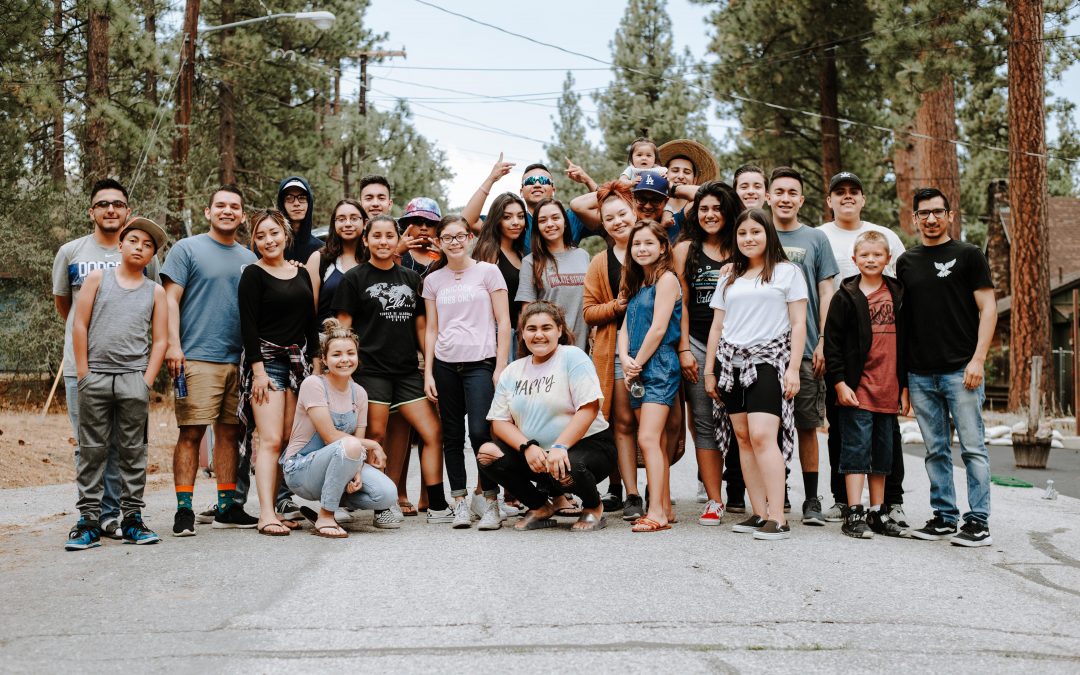
Weekly Ubuntu Cloud Meeting And Q+A
As many of you will know, [Ahmed Kamal](https://foss-boss.blogspot.com/) is one of the horsemen, and he is focusing his community building skills on creating a rocking Ubuntu Cloud community. We have [awesome technology](https://www.ubuntu.com/cloud) for harnessing [public](https://www.ubuntu.com/cloud/public), [private](https://www.ubuntu.com/cloud/private). and [personal](https://one.ubuntu.com/) clouds, and Ahmed is here to build a community of both users and contributors.
Soon Ahmed will be announcing a new cloud portal, and he has also set up a [Facebook Page](https://www.facebook.com/ubuntucloud), and [Twitter](https://twitter.com/ubuntucloud) and [identi.ca](https://identi.ca/ubuntucloud) accounts. Buzz is building, and the Ubuntu cloud community hangs out in `#ubuntu-cloud` on the freenode IRC network. Come and join us!
This week Ahmed is going to be kicking off weekly meetings in `#ubuntu-cloud` which are designed for:
* General questions about using Ubuntu on the cloud.
* General questions about setting up a public or private cloud.
* General questions about joining and participating in the community.
* Planning work and initiatives in the community, such as advocacy, development, translations and more.
These meetings are not only an ideal place to go and ask questions about using different Ubuntu cloud technologies, but also to find out how you can participate in our community. There meetings happen **every Wednesday at 3pm UTC** in `#ubuntu-cloud` on freenode. More details on how to join are [here](https://wiki.ubuntu.com/UbuntuCloudMeeting).

New Ubuntu Patch Pilot Scheme
When someone is new to Ubuntu and they want to get started helping to package bug fixes and software, they engage in the [Sponsorship Process](https://wiki.ubuntu.com/SponsorshipProcess). In a nutshell, you get the source code for the package, apply the fix (or create the fix yourself), and then because you don’t have upload access, you ask another Ubuntu developer to review your work. This act of reviewing work is known as *sponsoring*, and it is something we have sometimes struggled as a project to keep up with – there are often many contributions that need sponsoring, but not enough volunteers in the existing developer community to review these contributions.
This is something we have wanted to fix for a while. Any contribution to Ubuntu is a *gift* and we should treat it as such and review it in a timely and encouraging manner. Sponship is an *incredibly* important function in our community — it is an investment in a new generation of Ubuntu contributors. We can do all the outreach and advocacy for joining Ubuntu in the world, but if folks contribute content and it is not reviewed, they will grow bored and move on to something else. We believe that new contributors should feel the buzz and excitement of working with existing Ubuntu developers and getting their work uploaded when it meets our quality needs.
When new contributors want something reviewed, they subscribe the bug with the fix attached to the [sponsorship queue](https://bugs.launchpad.net/~ubuntu-sponsors/+subscribedbugs) and existing developers review that queue. Unfortunately, the queue has sometimes been slow in getting reviewed as existing developers have been busy with there own work, or uninterested in reviewing new contributions. Our goal at UDS was to find a solution to getting the queue in shape and ensuring new contributors get their work reviewed preferably within a few days.
So this is what we are doing. Inspired by the Bazaar team, we are asking all Canonical Ubuntu Platform Team engineering staff who have the skills to review contributions to spend at least one day a month reviewing content. These folks will be called *patch pilots* and we have drafted a [schedule](https://wiki.ubuntu.com/UbuntuDevelopment/CodeReviews#Schedule) which outlines which Canonical staff will be available in `#ubuntu-devel` on freenode and available to review contributions. The responsibility of these staff is to:
* make the contributor feel welcome and express that we really value their work.
* help to ensure the contributor knows who the right people are regarding the work that they are doing (e.g. if they are working on GStreamer patches, making sure they know the folks who also work on GStreamer).
* review the patch and offer input; if the patch pilot doesn’t have the skills to review the patch, they should ensure that the contributor is connected to another person who can help.
* answer any questions about the process or anything related to their contirbutions to Ubuntu.
To track this work we have [some graphs](https://reports.qa.ubuntu.com/reports/sponsoring-stats/) that we will be using to assess progress. I am particularly interested in the following two:
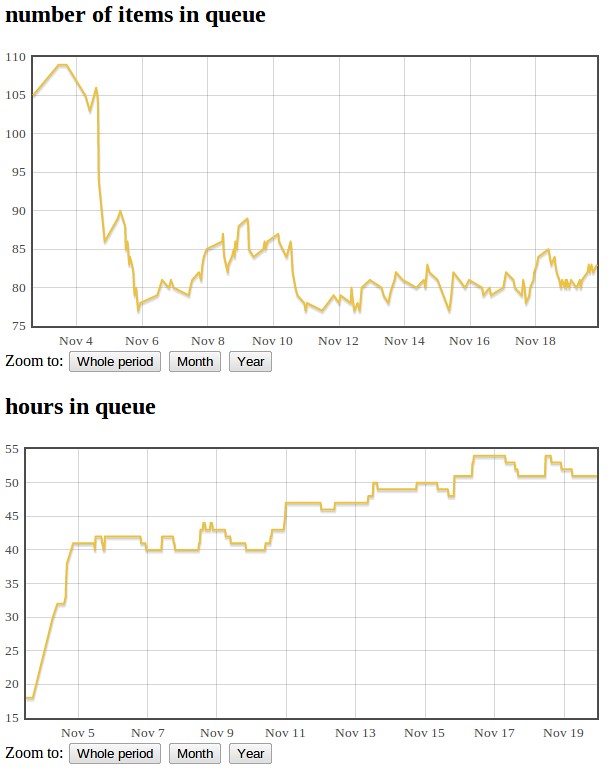
*These graphs snapshotted today.*
I would like to see the number of items in the queue stay as close to the bottom part of the graph to indicate that items enter and leave the queue quickly. I would also really like to see the *hours in the queue* graph reduce to indicate the short response time.
We are going to be regularly reviewing the progress and performance of this new program, and if you have any questions feel free to pop into `#ubuntu-devel` on freenode and ask. 🙂
Thanks to everyone who is participating at a patch pilot, and if you would like to be a patch pilot, just [pick some items from the sponsorship queue](https://reports.qa.ubuntu.com/reports/sponsoring/) and rock on them. 🙂
### Keep Up To Date!
Keep right up to date with everything going on in the Ubuntu packaging and development world:
* [@ubuntudev on Twitter](https://twitter.com/ubuntudev)
* [@ubuntudev on identi.ca](https://identi.ca/ubuntudev)
* [Ubuntu Development Facebook Page](https://www.facebook.com/pages/Ubuntu-Development/141173545934275)
…and coming soon, Daniel Holbach will be running a live videocast all about Ubuntu development, packaging, and more, complete with news, tutorials, Q+A and more! Stay tuned (pun intended)!
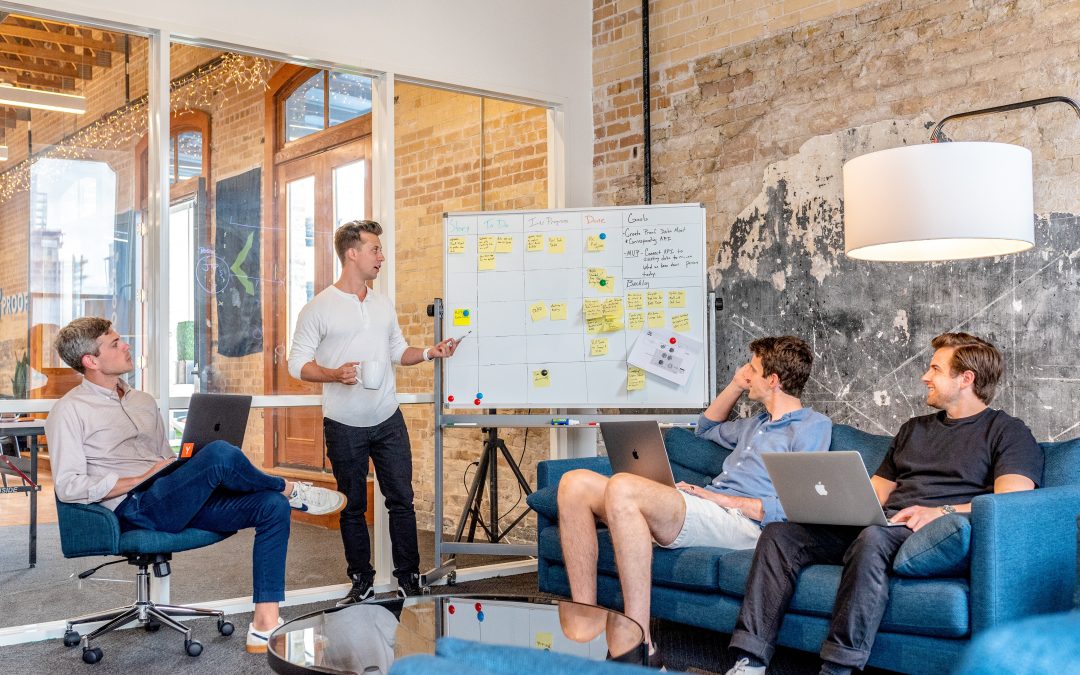
No Maverick PPA For Unity
Despite original plans to ship a Unity PPA for Maverick, the team in trying to make this work happen have come to the conclusion that it is going to be too complex, and also put Maverick desktops at risk of breakage. I just wanted to ensure everyone is aware of this feedback. Let me
> Hi everybody,
> As some of you may know, there have been some discussions about backporting unity compiz to maverick as we had backported unity to lucid with a dedicated ppa and its own session.
> However, after some porting discussions and following the natty work I think we should perhaps consider not doing that because it’s going to take quite some work for a moderated benefit and we would better spend those efforts in making natty rocking.
> Some bits what came from discussions between ubuntu desktop and dx teams:
> * Why do we want to backport? – usually it’s to make easier for users to test the new version and give some feedback on it. The first round of
feedback will be about things not starting, or not working at all or crashing, we will get that feedback from the natty users. Later on we will want extra eyes on the user experience but by the time we are there it will be really hard to backport the new stack due to new depends (details on that later).
> * New unity means new compiz which means users will have no working desktop left, that’s not something we should get our users in. Indeed, the new compiz is not made to be installed with the old one, the upgrade will replace compiz 0.8 but has lot of issues still: the configuration is not migrated, the keybindings are not working, the workspace layout and switcher are not working, the session registration is not working, the desktop capplet needs to be updated, the GNOME keybindings capplet is not working. Some of those issues are fixed in natty, but we can’t backporting every single GNOME applications to make them work in a maverick ppa.
> * the new unity packaging is not made to have old and new unity installed at the same time so the old unity will not be installed anymore.
> * the new unity is not usable as a desktop yet, which means the user will not have the old unity, compiz under GNOME will be broken is several ways which let the GNOME session hard to use, the new unity is not ready for production … users who will want to give unity a try will just land in a situation when they have no environment left they can use for work…it would be less breakage to suggest them to update to natty where we fix those integration issues.
> * The new unity stack will be hard to backport – the next indicators uploads will build-depends on gtk3 (even if we don’t use it we need to
have libraries in natty to build gtk2 and gtk3 version to allow people to start porting work), we use new glib api, etc. Backporting the stack unity will need is going to turn into lot of work and a non trivial task.
> We think users will have a better experience by trying unity on natty and that we will gather more useful and coherent data, since it’s likely to be more stable than getting a working – and a less tested by our team – backport.
> didrocks on behalf of the desktop and dx teams
There was consensus in the porting team around this. Of course, if anyone in the community wants to take the time to make a Maverick PPA, run with it, but it is felt that the resources are better spent focusing on Natty right now. I agree with this too.
As such, if you want to play with the new Compiz Unity, you will need to install Natty. But don’t despair! This is really easy to do. My recommendation is that you get a USB keyring, download [the daily image](https://cdimages.ubuntu.com/daily-live/current/), and use [unetbootin](ppa:unetbootin) to install it. I have found this to be a great way to try a new distro on your computer without moving you main machine over quite yet.
Just to be clear, Compiz Unity is yet switched on by default in natty and you will need to run `ccsm` to activate it. It is expectated to be switched on in the buily builds next week.
Thanks for your patience folks, more details to follow soon.
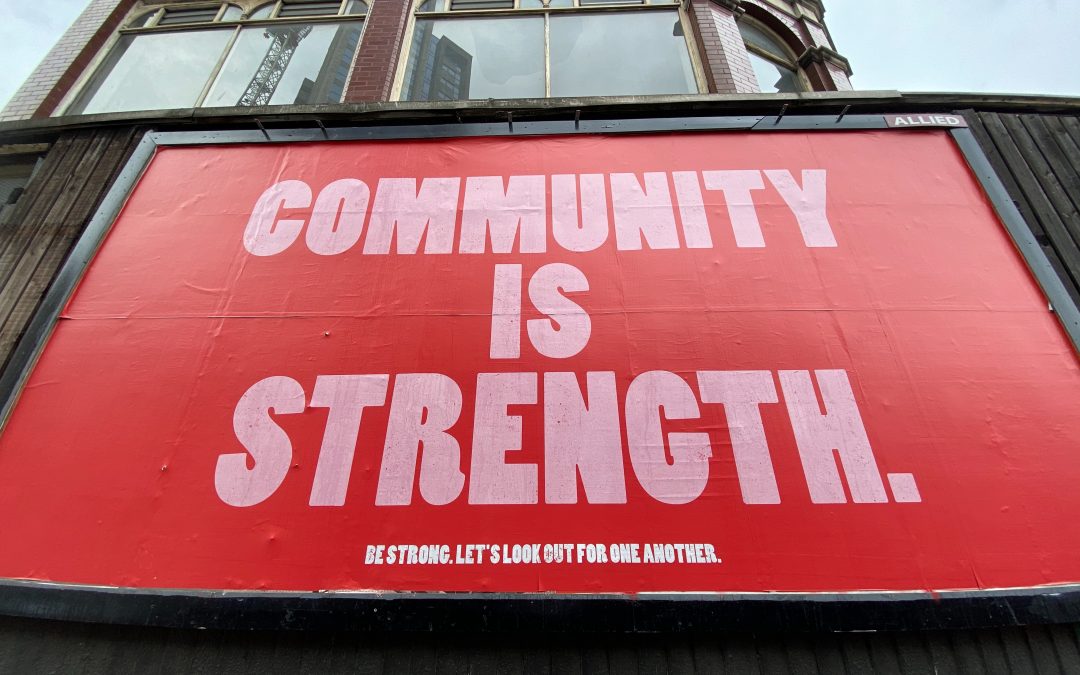
Ubuntu Global Jam: Let’s Make This Rock

Every cycle we organize the [Ubuntu Global Jam](https://wiki.ubuntu.com/UbuntuGlobalJam); an event in which our global community gets together to help make Ubuntu better. The *Ubuntu Global Jam* is a great opportunity to get together and meet other Ubuntu fans and contributors, make new friends in your area, and help to make the next Ubuntu release a really rocking release!
**Never before has the Ubuntu Global Jam been so important!** In this cycle we are shipping Unity as the new desktop interface, and we are going to be working hard together to ensure that as many Unity bugs are squeezed out as possible. This is a great chance to come along and help test Unity, report bugs, triage problems, write documentation, help advocate Ubuntu in your area, and otherwise make a real difference that will benefit others. Together we can make Ubuntu 11.04 the best Ubuntu release yet!
So, I just wanted to give everyone a heads up that the date of the Ubuntu Global Jam is **1st – 3rd April 2011**. I know it is a way off yet, but I am really keen that everyone has as much notice as possible to get your events ready! Laura has added the [Ubuntu Global Jam in the LoCo Directory](https://loco.ubuntu.com/events/global/567/detail/) so feel free to go and add your events there! We will also be having some tutorial sessions about how to organize events soon! When you add an event, but sure to Tweet/Dent/Facebook it and use the `#ugj`, `#ubuntu`, and `#locoteams` tags so others can see them!
This is going to be an awesome global event, and *you* can help this rock! For more detail of how to organize an event, see [this guide](https://wiki.ubuntu.com/UbuntuGlobalJam).

Reflections On Respect
*Before I go on, a few clarifications. Firstly, this blog post represents the views of me, myself, and I, and not the views of Canonical or the Ubuntu project. Secondly, throughout this blog entry when I say “community” I am referring to the wider Open Source and Free Software community, and not the Ubuntu community specifically*.
The last week has been pretty intense. Many of you will have seen the discussion surrounding [OpenRespect](https://www.openrespect.org/) and the different write-ups, comments, and views expressed about it. While I expected OpenRespect to get some attention, I never expected the sheer level of attention it has received, and today I have been reflecting on it all and wanted to share some conclusions.
While I feel OpenRespect has raised some important points and people have shared some constructive feedback, I *have* made some mistakes, and I have always believed that mistakes deserve sincere apologies. I started OpenRespect with the best intentions and out of a love for our community and maintaining pleasant and healthy discourse, but honesty goes both ways, both in intent, and in putting your hands up when you screw the pooch and get something wrong. Let me re-cap the story so far.
### The Back Story
Over the last few years I have been picking up on increasing levels of snarky, unconstructively critical, bickering and name-calling in our community; this is not just people having different views — differences in opinion and views are how we grow and learn — I am instead referring to the conduct in which these views are expressed. In addition to this, many community members would talk to me about this conduct and how it makes their Open Source and Free Software experience less enjoyable. Over the years I have also been privy to people who have left our community because they were tired of this conduct; good hackers and good contributors who just didn’t want to put up with back-biting any more.
Over the years I have taken a pretty calm approach to all of this, and I have always tried to be a calming voice to others who have experienced this disrespectful conduct and felt exasperated by it. I have tried to reassure these folks that when this snarky, unconstructively critical bickering is in full swing, just try and remember the bigger mission and importance of bringing freedom to people. My response has often been “*there are good and bad days in the revolution*” to help them focus on the bigger picture that we are all working towards. We are all doing great work here, in whichever way we choose to contribute to our wider Open Source and Free Software community.
But as time went on I had become more and more conflicted over all of this. I love this community. I have seen some of the most wonderful acts of human decency and sharing happen in our in community. I have seen countless people volunteer time away from their families and friends to help participate in something they care about. As far as I am concerned *where* people contribute doesnt matter, be it Ubuntu, Fedora, OpenSuSE, GNOME, KDE, Linux…wherever…the point is that they feel a personal sense of empowerment that ultimately benefits the project they choose to join. I would then find it heartbreaking that these good people with the best intentions would get riled in disrespectful conduct from others, some of whom would offer little other than commentary from the peanut gallery.
I have always felt a personal sense that I need to do something about this. I appreciate and understand that I am seen as a leader in some parts of the community, and I believe that leaders have a responsibility and often have an increased chance at bringing change in dealing with risks to the health of our community. The challenge is that this is *not a tractable problem*: it is not something we can make a blueprint for, agree on some work items, and fix. It is a cultural problem, so how do we resolve it?
### An Idea Of What To Do
A little while back I [shared some of these concerns](https://archivedblog.jonobacon.com/2010/11/05/making-our-world-more-respectful/) about these issues and that I was conflicted about what I could do to help. My initial idea was inspired by the [Ubuntu Code Of Conduct](https://www.ubuntu.com/community/conduct) to write a statement that reminds us all of some of the common elements in polite discourse and discussion. The Ubuntu Code Of Conduct has been a surprisingly effective tool in setting expectations around conduct in Ubuntu, and the majority of discussions in the Ubuntu community do indeed respect the attributes of the Code Of Conduct.
I shared this idea of a statement with two friends of mine who are also leaders in other projects, Stefano Zacchiroli the current Debian Project Leader and Jared K. Smith the current Fedora Project Leader, and I mentioned this in my original blog entry:
> “Over the last two or three weeks I have been kicking around the idea of putting together some kind of statement, inspired by the Ubuntu Code Of Conduct, that many of us could put our names behind. In fact, I registered openrespect.org and started putting together a draft. I shared this idea with Stefano Zacchiroli the current Debian Project Leader and Jared K. Smith the current Fedora Project Leader, two guys who I have unending levels of respect in their viewpoints. They thought it was a pretty good idea to have a statement, and were happy to participate”.
Later in that blog entry I mentioned that I felt less and less comfortable putting the statement I had prepared online and in an official capacity as a specific project, and so shared the statement in the blog entry instead. Shortly after there was a series of public and private comments in support of the idea, as well as some feedback and criticisms.
In a fit of inspiration, and feeling that this positive feedback may suggest that I may be able to help with this non-tractable problem, and knowing full well that I didn’t have much time to go through a more lengthy back and forth process with Stefano and Jared to get a text that represents the full community (which would likely result in ire from others who were not involved who disagree with the statement anyway), I put the statement (with a few suggestions from others from original blog entry) up on openrespect.org and announced it. I made it clear that the the statement was *my take* on respect.
Since then there has been multiple articles in the press, blog entries, and lots of comments, and a really divided mix of opinion on OpenRespect. Many have expressed that they feel OpenRespect is an important and worthwhile effort, and many have criticized it for various reasons.
Some of the criticisms I think have been reasonable, and some less so, and while I have sought to clarify areas of concern, some of these clarifications have been either missed or some cases ignored. Before I go on, I want to tend to these criticisms and set the record straight:
* “*you said Stefano and Jared supported the idea, but you didn’t consult their input*” – I screwed up here, and I certainly could have handled this much better. While I specified that Stefano and Jared were supportive of the *idea* of a statement, which they were, my mentioning this in the blog entry (as quoted above) inferred their support for a *statement* that they were not involved in the production of. I have apologized to both Stefano and Jared about this, and I want to offer my sincerest public apologies too. I didn’t mean to infer they supported the statement, but instead the idea, but I appreciate that it didn’t come across that way. I am an idiot sometimes, and this is a good example.
* “*you are doing this because Canonical wants to shield Ubuntu of criticism*” – let me be 100% clear about this: neither Canonical, the Ubuntu Community Council, the Ubuntu Technical Board, Mark Shuttleworth, Jane Silber, my manager, nor any other entity inside Canonical or Ubuntu asked me to work on OpenRespect, and I have not sought to suggest that it is a product of either Canonical or Ubuntu. I don’t deny that some of the disrespectful criticism that I have seen leveled at Canonical and Ubuntu will have partially inspired OpenRespect, but it is not designed for Ubuntu and Canonical; the real inspiration is the disrespectful discourse I have seen throughout the wider Open Source and Free Software community.
* “*you hypocrite! LugRadio was disrespectful!*” – I can understand how some may say this, but there are few thoughts here. Firstly, when we did LugRadio, we were all younger, stupider, and we bathed all of our content in LugRadio in satirical and entertainment value. At the time we ruffled some feathers, and that was part of the appeal of the show, but sometimes we did inadvertently take it too to far. Sometimes we were disrespectful, and frankly, sometimes we were also inadvertently assholes. We never set out to be assholes, but we did set out to be edgy in a satirical way, but we sometimes went too far and I apologize for that. But you know what, we all grow and mature in different parts of our lives. The Jono Bacon in LugRadio and the Jono Bacon today are two different people. My growth in my career, getting older, getting married, and just understanding the world and reflecting on my previous experiences, have all helped to mature me, and I know this has happened to the other LugRadio presenters too.
I hope this tends to main criticisms applied to OpenRespect. I am sure others will find further faults and disagreements in the project, and I am happy to deal with them where I can.
### Moving Forward
So where do we stand today after all the articles, the blogs, the comments, and the opinion? I still believe this is an important problem for us to solve. In my 12 years in Open Source and Free Software I have found it the most rewarding and invigorating time of my life, and I get so pumped up when I see people join our community and feel that incredible sense of empowerment and excitement. I remember when I first got involved feeling this intoxicating sense of opportunity that I could contribute to almost any part of our community, and even if I didn’t possess the skills to do, there were always people who were kind enough to help me learn. When I started I knew nothing about Linux or Operating Systems, all I knew was that this community thing was cool and maybe, just maybe, I could help make a difference too.
I love this community and I love this sense of empowerment, and it really pains me when I see the snarky, unconstructively critical, bickering and name-calling. I want everyone, irrespective of which project they join, to have the best possible experience with our community. This is why I have taken an interest in sharing my experiences in my writings and book, and encouraging community leaders to get together at an event I and some friends organize each year. No-one gets a monopoly on community, and we can all share and learn together to make it better for everyone.
OpenRespect was an effort forged with the best intentions in the world of encouraging us all to have polite, constructive and respectful discussions. As I have said before, I never want to dissuade the act of sharing disagreements and sharing different opinions and approaches, but I do believe that all discussion and debate should be on a firm footing of respect and polite discussion.
Now, maybe OpenRespect is not the best solution to the problem, some would argue it isn’t, and some would argue that just a statement is ineffective anyway. I am not suggesting OpenRespect is the only solution to the problem, and I would love to hear other tractable suggestions for how we can improve and avoid disrespectful conduct. A good example came from Jef Spaleta who suggested maybe we need a set of suggestions or guide for how people express concerns or criticism of decisions or policies in a project in a way that is respectful and constructive. I think this is a wonderful idea.
As I wrap this *War And Peace* sized collection of personal blatherings I do believe that this is still an important problem for us to solve, and we all have the ability to contribute to making our community a cordial and pleasant place by just being cordial and pleasant ourselves. Sure, there will always be trolls, but those people often get bored and move on eventually. Some of us will also get things wrong sometimes and accidentally take things too far, I am as guilty as anyone for doing this, but those experiences are always a good opportunity to apologize and move on. Unfortunately I am back in the position I was at the start of this story: I feel a need and a responsibility to do something to help out, but I am not sure what to do.
Finally, I want to again apologize to Stefano and Jared for idiocy on my part, and to also thank everyone who did participate with respect and constructive feedback in the discussions surrounding this topic.

The Severed Fifth Recording Campaign: We Need Your Help!
*Can’t see the video? [Click here](https://www.severedfifth.com/pay/)*
A few weeks ago we sat down with one of our advisors for Severed Fifth and a strong supporter of the band who has been through the industry and played in a number of established acts. He said that he believes we have a real shot at making a difference both musically and in changing how the industry works with Severed Fifth, and he believes that our culture of giving the music away and building a community is right, but to compete in the existing music industry we need a professionally recorded album that stands up to the production standards of other professional bands. He gave us an important piece of advice. He felt that while Nightmares By Design is a great sounding demo, it doesn’t do the music justice. He believes we need to get in a professional studio to help our music really shine and get this train on the tracks.
He is right. We are all pleased with Nightmares By Design but it lacks the big roomy drum sound, thundering bass undertones, punchy vocals that you get when a singer is pushed by a recording engineer, and the sheen that a studio recording gets you. It also lacks the stunning performances of the new Severed Fifth live band. *Nightmares By Design* is a blueprint for a stunning professionally recorded album. Let’s make this happen, and let’s *change the rules* with it.
For us to help change the music industry via Severed Fifth, and make us a great example of how Free Culture can work, we need an album recording that stands up against the latest Megadeth, the latest Iron Maiden, and the latest Slayer. We believe in the music, and we know we can do this, but we need your help to fund the recording. If we all contribute, we can do this.
### How You Can Help
We need your help to contribute to the recording. We need **$5000** to record. If 500 Severed Fifth fans donate just $10, we will nail it. If you can help we really want to say thankyou for your contribution, so **we will print the name of everyone who contributes in the album liner notes, and list all of you in an article when we release**. If you can afford more we have some additional perks:
* For contributions of **$50** or more – we will send you a signed photo of the band and a CD copy of Nightmares By Design.
* For contributions of **$100** or more – we will send you a Severed Fifth t-shirt, signed photo of the band and a CD copy of Nightmares By Design.
* For contributions of **$200** or more – we will send you a signed copy of the new album on CD, a Severed Fifth t-shirt, signed photo of the band and a CD copy of Nightmares By Design.
* For contributions of **$300** or more – We will dedicate a song to you at our next live show and send you the video of it, send you a signed copy of the new album on CD, a Severed Fifth t-shirt, signed photo of the band and a CD copy of Nightmares By Design.
*Of course, if you choose you can’t or don’t want to contribute, that is fine, the music will be still be ready and available to everyone when the album is complete and you can download it, share it with your friends, remix it, and enjoy it!*
**[TO FIND OUT MORE AND CONTRIBUTE, CLICK HERE!](https://www.severedfifth.com/pay)**

Natty Community Team Plans
With every cycle, part of my responsibility is to understand the needs of the Ubuntu community, understand the needs of some of the key stakeholders to my team, and to plan what the team will work on throughout the next cycle. Recently I have been asking the team (Jorge Castro, Daniel Holbach, David Planella, and Ahmed Kamal) to reach out to the community to get a feel of needs, and flesh out their goals in a set of blueprints. I then reviewed and accepted a set of blueprints ready for the cycle. I think this is a good, solid chunk of work and will make some inroads into some key areas.
In deciding on this strategy there were a set of high-level themes that we want to see work applied from the team:
* ensuring that the move to Unity in 11.04 is successful, and that we have an empowered and enjoyable community experience for those who participate.
* improve the Sponsorship Queue – the queue is where new contributors cut their teeth, and we need to better serve their needs.
* we want to see growth in the number of people who are interested in participating in Ubuntu packaging and development, and make it easier for the community to encourage and inspire people to join us.
* spread wider awareness and knowledge of translations as a key part of the Ubuntu ethos, and encourage people to participate in bringing Ubuntu to more people in their own language.
* start growing an inclusive cloud community, both in terms of end-users and people who want to improve the Ubuntu cloud-related products.
* spread better awareness of the capabilities of Ubuntu in the cloud via knowledge transfer and content.
* socialize the new Places API in Unity as an interesting target of opportunity for application developers.
* continue to grow awareness of Ayatana technologies for application authors.
In addition to this, there are a set of high-level goals that the team isnt explicitly tasked with, but I am keen to see improvements in:
* making the Ubuntu experience more personal and less process orientated.
* helping to encourage wider diversity in the Ubuntu project and at the Ubuntu Developer Summit.
* supporting the Ubuntu Accessibility team in their work, particularly in helping Unity to be fully accessible.
* helping to ensure that Brainstorm better informs the planning process of our user’s needs.
* helping to support the Ubuntu Beginners team; they are doing some truly awesome work.
* continuing to support the growth of our stunning LoCo Teams.
Of course, there will be other areas of focus throughout the cycle, but this provides a good idea of our thinking.
So let’s take a look at some of the work that I have committed the team to. As with previous cycles, you can track this work with our [team burndown chart](https://people.canonical.com/~pitti/workitems/natty/canonical-community.html) to see how on track we are.
Here are the items:
### Developers
These are items related to the growth of developers in the Ubuntu project:
> OBJECTIVE: Produce high-level overview of Ubuntu Development (Daniel Holbach)
> [https://blueprints.launchpad.net/ubuntu/+spec/ubuntutheproject-community-n-high-level-dev-overview](https://blueprints.launchpad.net/ubuntu/+spec/ubuntutheproject-community-n-high-level-dev-overview)
> OBJECTIVE: Training Events (Daniel Holbach)
> [https://blueprints.launchpad.net/ubuntu/+spec/ubuntutheproject-community-n-dev-training-events](https://blueprints.launchpad.net/ubuntu/+spec/ubuntutheproject-community-n-dev-training-events)
> OBJECTIVE: Produce Outreach resources (Daniel Holbach)
> [https://blueprints.launchpad.net/ubuntu/+spec/ubuntutheproject-community-n-development-outreach-resources](https://blueprints.launchpad.net/ubuntu/+spec/ubuntutheproject-community-n-development-outreach-resources)
> OBJECTIVE: Improve the Sponsorship queue (Daniel Holbach)
> [https://blueprints.launchpad.net/ubuntu/+spec/ubuntutheproject-community-n-improving-the-sponsorship-queue](https://blueprints.launchpad.net/ubuntu/+spec/ubuntutheproject-community-n-improving-the-sponsorship-queue)
> OBJECTIVE: Empower developers to encourage others to join Ubuntu Development (Daniel Holbach)
> [https://blueprints.launchpad.net/ubuntu/+spec/ubuntutheproject-community-n-developer-advocacy](https://blueprints.launchpad.net/ubuntu/+spec/ubuntutheproject-community-n-developer-advocacy)
### Translations
These are items related to encouraging participation in translations and making Ubuntu available in your language:
> OBJECTIVE: Translation Stories (David Planella)
> [https://blueprints.launchpad.net/ubuntu/+spec/ubuntutheproject-community-n-translations-stories](https://blueprints.launchpad.net/ubuntu/+spec/ubuntutheproject-community-n-translations-stories)
> OBJECTIVE: Translations Training Sessions (David Planella)
> [https://blueprints.launchpad.net/ubuntu/+spec/ubuntutheproject-community-n-translations-training-sessions](https://blueprints.launchpad.net/ubuntu/+spec/ubuntutheproject-community-n-translations-training-sessions)
> OBJECTIVE: Translations Portal (David Planella)
> [https://blueprints.launchpad.net/ubuntu/+spec/ubuntutheproject-community-n-translations-portal](https://blueprints.launchpad.net/ubuntu/+spec/ubuntutheproject-community-n-translations-portal)
> OBJECTIVE: Language Pack Updates Schedule (David Planella)
> [https://blueprints.launchpad.net/ubuntu/+spec/ubuntutheproject-community-n-translations-language-pack-updates-schedule](https://blueprints.launchpad.net/ubuntu/+spec/ubuntutheproject-community-n-translations-language-pack-updates-schedule)
### Cloud
These are items related to growing our cloud community:
> OBJECTIVE: Start building server/cloud community contributers (Ahmed Kamal)
> [https://blueprints.launchpad.net/ubuntu/+spec/ubuntutheproject-community-n-buildingcloudcontributors](https://blueprints.launchpad.net/ubuntu/+spec/ubuntutheproject-community-n-buildingcloudcontributors)
> OBJECTIVE: Work on next Iteration of Cloud Portal (Ahmed Kamal)
> [https://blueprints.launchpad.net/ubuntu/+spec/ubuntutheproject-community-n-cloud-portal-iteration2](https://blueprints.launchpad.net/ubuntu/+spec/ubuntutheproject-community-n-cloud-portal-iteration2)
> OBJECTIVE: Screencast Library (Ahmed Kamal)
> [https://blueprints.launchpad.net/ubuntu/+spec/cloud-community-n-cloudscreencastlib](https://blueprints.launchpad.net/ubuntu/+spec/cloud-community-n-cloudscreencastlib)
> OBJECTIVE: Training Events (Ahmed Kamal)
> [https://blueprints.launchpad.net/ubuntu/+spec/cloud-community-n-cloudsessionsandoutreach](https://blueprints.launchpad.net/ubuntu/+spec/cloud-community-n-cloudsessionsandoutreach)
> OBJECTIVE: Merging-in cloud community outreach into existing outreach campaigns (Ahmed Kamal)
> [https://blueprints.launchpad.net/ubuntu/+spec/cloud-community-n-cloudsessionsandoutreach](https://blueprints.launchpad.net/ubuntu/+spec/cloud-community-n-cloudsessionsandoutreach)
### Upstreams
These are items related to how our technology fits with upstreams:
> OBJECTIVE: Socialize Unity Places API technology with upstream application developers (Jorge Castro)
> [https://blueprints.launchpad.net/ubuntu/+spec/appdevs-dx-n-unity-places](https://blueprints.launchpad.net/ubuntu/+spec/appdevs-dx-n-unity-places)
> OBJECTIVE: Unity Community Bug Fixing Participation (Jorge Castro)
> [https://blueprints.launchpad.net/ubuntu/+spec/ubuntutheproject-community-n-unity-bugfixing-participation](https://blueprints.launchpad.net/ubuntu/+spec/ubuntutheproject-community-n-unity-bugfixing-participation)
> OBJECTIVE: Ayatana Application Development Advocacy (Jorge Castro)
> [https://blueprints.launchpad.net/ubuntu/+spec/ubuntutheproject-community-n-ayatana-advocacy](https://blueprints.launchpad.net/ubuntu/+spec/ubuntutheproject-community-n-ayatana-advocacy)
In addition to this we will be running the usual set of initiatives throughout the cycle:
* Ubuntu Open Week
* Ubuntu Developer Week
* Ubuntu Application Developer Week
* Ubuntu Global Jam
* Ubuntu Release Parties
I would also like increase the visibility and focus of the different work going on throughout the community. There is some incredible work going on throughout the community, and I am keen to see people get recognition for that, so we are going to work to try and highlight these contributions where possible.
Like previous cycles, throughout this cycle I will also be having some regular catch-up calls with representatives of our community who are leading key initiatives – examples of this include Penelope Stowe from the Accessibility team, Laura Czajkowski from the LoCo Council, Stefano Zacchiroli the Debian Project Leader and others.
I am sure I have missed off some areas of focus you feel we need to make, so do suggest them in the comments.

Ubuntu 11.04 Developer Summit Proceedings Now Available
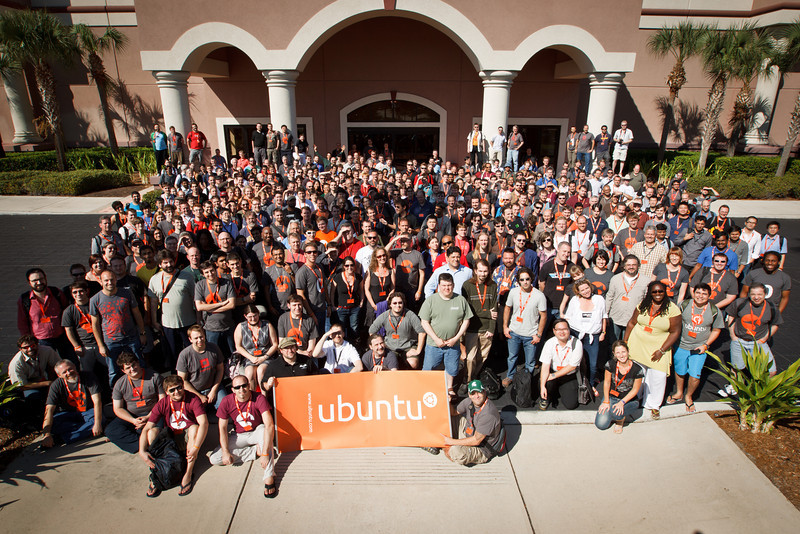
I am pleased to announce that the proceedings from the recent [Ubuntu Developer Summit](https://uds.ubuntu.com) in Orlando, Florida are now available.
This set of proceedings summarizes many of the key decisions made at UDS in the tracks. Please remember a few caveats though:
* These are *plans*. Many of these plans will reach fruition, but some won’t. That is the nature of community contributions, but many of these plans are planned and scoped work that Canonical stuff are expected to deliver.
* UDS has a huge amount of activity and these proceedings don’t summarize every decision that was made.
Thanks to everyone who took notes, and thanks to the track leads for helping me make the content more digestable in the form of the proceedings.
**[READ THE PROCEEDINGS HERE](https://wiki.ubuntu.com/UDSProceedings/N/Final)**.
